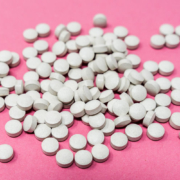28 November 2016
Cancer treatment takes a physical and mental toll. As patients progress from active treatment into the survivorship phase, many become frustrated that they cannot “bounce back” as quickly as they would like. Getting back to “normal” may not be realistic – many of us are doing way too much even on a good day, and ignore the warning signs telling us to slow down. Cancer is a major jolt, and all energy gets diverted for treatment. After treatment, there are new physical and mental limitations, and priorities may need to be re-set.
A study recently published in the Journal of Clinical Oncology may help explain why patients have such a difficult time getting back to their pre-treatment self. Researchers postulated that cancer treatment may trigger an accelerated aging process in some cancer survivors. They measured inflammatory cytokines (proteins that are important in cell signaling) in cancer survivors and a control group of patients without cancer. There were no differences before treatment, but after 18 months, breast cancer survivors had higher levels of these inflammatory markers compared to the control group. In addition, higher levels of inflammation correlated with increased comorbidity (other medical problems) in cancer survivors.
The authors suggested (although this was not shown in their study) that with longer follow up time, the excess inflammation may contribute to poorer health and premature mortality in the cancer survivor group.They postulated that cancer treatment may trigger an accelerating aging process in cancer survivors and they stressed the need for longer followup and more study to determine the biology behind these effects.
Many cancer patients express that they feel they have “aged beyond their years”. This study suggests that the cancer treatments themselves may indeed contribute to the aging process. The study authors noted that their results underscore the need for breast cancer survivorship care to include recommendations for exercise, diet and weight management programs, as well as screening for and treatment of other medical conditions.




